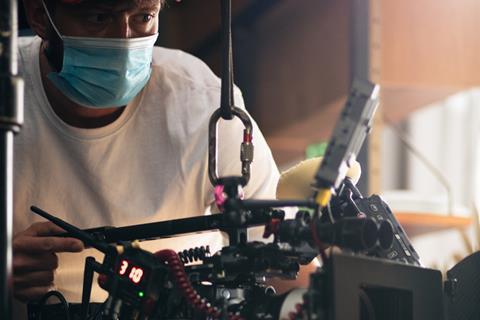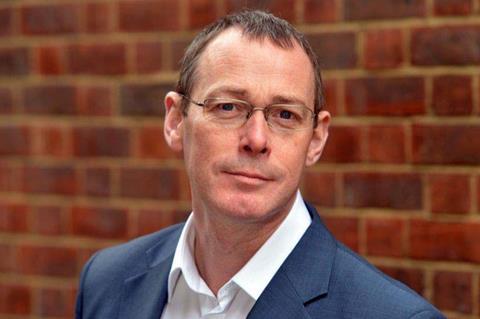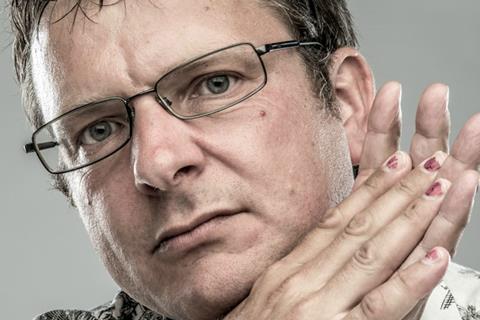
The UK independent film and TV sector is becoming increasingly concerned that the winding up of the government’s £500m Film and TV Production Restart Scheme (PRS) at the end of April will inhibit production with commercial insurance companies reportedly unwilling to underwrite shoots.
The PRS, first announced by the Department For Digital, Culture, Media and Sport (DCMS) in July 2020, was created to help producers unable to mount productions because of the lack of insurance coverage for Covid-19 related risks. It has been hailed as a success story and was extended last autumn for an extra six months.
It has now been confirmed that it will close for applications after April 30 and will only provide cover for claims until the end of June.
In a statement, the DCMS said: “Insurance trade bodies have stepped up work with commercial firms to provide cover to the UK’s booming screen industries as the government’s successful Film and TV Production Restart Scheme comes towards its planned closure. As the sector emerges from the pandemic, brokers and insurers will now work with the film and TV industry to manage risk so productions can go ahead without the taxpayer needing to step in.”
However, some producers and financiers are concerned they will again be left unable to secure commercial insurance, at least in the short term.
“Without affordable alternatives, it’s a potential disaster,” said producer Damian Jones of DJ Films, who has shot films in the last year including Raine Allen Miller’s Rye Lane and now has Curtis Vowell’s Seize Them! in production.
“There seems to be a disconnect between the DCMS, insurers and brokers in terms of perceived capacity and time scales for an insurance solution to take over from the PRS scheme, so it has been suggested that whilst insurance parties are discussing the next steps, they almost certainly won’t be in position from May 1, when the current scheme application deadline expires,” one insurance broker, who asked to remain anonymous, told Screen.
Lack of cover

John McVay, CEO of PACT, the body representing independent production and distribution companies, raised the prospect of independent films and TV dramas being postponed or even abandoned.
“If the commercial insurance market is not able to provide sufficient cover… then inevitably there will be some productions that will not be covered at all. If they are not able to self-insure, they will not be able to go into production,” he said. “Without insurance, we couldn’t give a guarantee to our buyers as producers that we would be able to deliver the product they had invested in, whether that was a domestic broadcaster or someone financing a film. That principle remains as true now as it did in March 2020 [at the start of the pandemic].”
One film financier, who also asked to remain anonymous, told Screen: “For certain low budget films that can’t raise money to manage Covid events or problems, then they [the producers] seriously might not get their films made.”
The squeeze on indie productions comes at a time when the UK is still in the midst of a huge production boom. There are some private companies offering insurance against Covid, with US outfit SpottedRisk and Great Point Media among names cited. “Insurers don’t really want to do it because they don’t know what they are letting themselves into,” the financier noted. “I still don’t know anyone who has done it… you are looking at a lot of exclusions even if you get it.”
It is not clear whether commercial insurers will protect films against “complete abandonment”.
“Anyone [in insurance] who says ’yes, let’s protect against Covid now’, they don’t know what they’re letting themselves in for. At the moment, every production is having three or four positives a week,” a producer noted of the current high rates of Covid in the UK. “Most productions are managing it, just telling people to stay at home and getting on with it.”
Extension lobbying
Lobbying to extend the PRS further went on behind the scenes.
“We have all been working on this to try and facilitate a sensible transition from a public intervention to restoring a private insurance market,” said McVay. “The worry is that the market may not be at the scale or capacity we need to ensure that all of the productions that would have benefited from the PRS scheme previously will be able to get cover.”
Last month, the UK government announced its ’living with Covid’ plan intended to open up the economy and remove restrictions on everyday life.
“We’ve only been ‘living with covid’ for six weeks, [and there is] not enough data for underwriters to come back into the market to say they are happy to write the risk. They need three to six months of data for them to calculate risk/claims,” said a second insurance broker.
“If you put yourself in [the insurers’] shoes, they don’t know what living with Covid looks like in terms of risk,” McVay concurred. He noted the axing of the scheme will “fall disproportionately on domestic film and TV production” as the US streamers and studios are able to “self-insure”.
In the long terrm, McVay said he was “quite confident” that the insurance market will come back. “It’s just when it comes back and at what scale is the worry right now.”
One solution floated was for the scheme to be extended until the end of September, which is when the Live Events Reinsurance Scheme finishes. By then, insurers might be more confident about stepping back in. “I thought [the government] would extend it for three or more months to get into the summer, just to see if it [Covid] is going to hang around,” said McVay.
The show must go on

Some independent producers and financiers believe the sector now needs to wean itself off PRS support.
“There is a finite amount of money in the government coffers before they come back to us and put our taxes up. It would be great to have it [PRS] extended, but you’ve got to get on with it,” said Phil Hunt, co-managing director of Head Gear Films, whose recent credits include Peter Strickland’s Berlinale title Flux Gourmet, and Howard J Ford’s thriller The Ledge, which shot in Serbia. “At some point, we’ve got to stop being mollycoddled.”
Hunt estimates Covid has caused budgets to rise by 8%. Others put the figure as high as 20%, especially when the cost of the pandemic is combined with the added expense of crewing up during a production boom when there is huge competition for everything from production accountants to location scouts. The withdrawal of PRS support will be “another difficulty” but Hunt added that “it has been amazing that the government actually put this in place in the first instance.”
Head Gear is looking to close on around 12 productions (not all of them in the UK). Hunt said it is possible to secure insurance for these projects – but not against Covid. “We just manage that risk ourselves. Many producers now understand how to deal with Covid, making less impact on productions than a year or so ago,” the Head Gear boss said. “It ain’t stopping me at all.”
















![[L-R]: Amanda Villavieja, Laia Casanovas, Yasmina Praderas](https://d1nslcd7m2225b.cloudfront.net/Pictures/274x183/6/4/1/1471641_pxl_20251224_103354743_618426_crop.jpg)








No comments yet